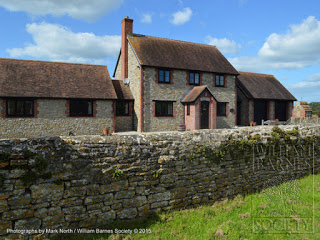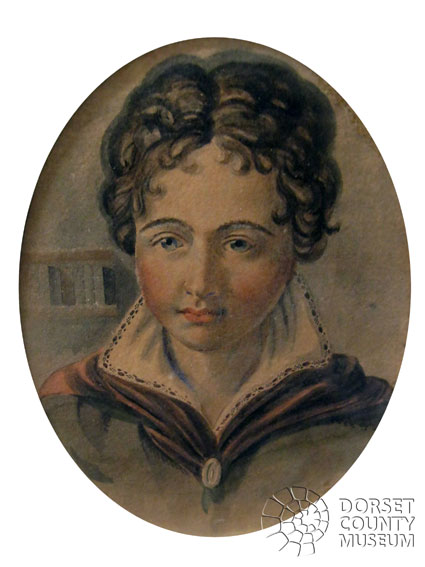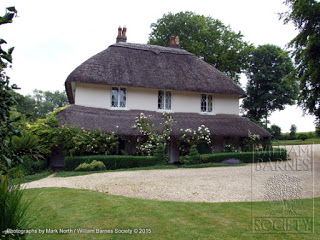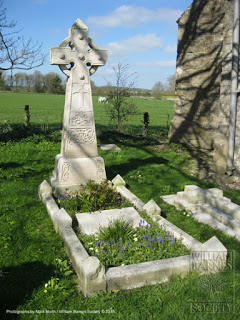Life of William Barnes

William Barnes Was Born In The Blackmore Vale On February 22nd 1801 At Rush-Hay, A Small Farmling At Bagber Near Sturminster Newton. He Was The Fifth Child, Of A Least Six Children Born To Grace And John Barnes
Though Williams grandfather had been a prosperous yeoman, his father was recorded in a census of Sturminster Newton taken on 10th March, 1801 (now in the Dorset History Centre) as "Labourer in Husbandry". John Barnes livelihood was barely above subsistence level and the family lived in a poor thatched cottage. Yet, in spite of lowly circumstances and his mother's death in 1816, William had experienced a happy childhood spent in his own home and in frequent visits to his cousins at Pentridge Farm nearby.
Barnes was an extremely intelligent child and had a passion for books and learning. He loved the Vale and it was his use of the language, his awareness and retention of the sights and sounds of the working class people of this area which inspired his dialect poetry. It was also in his youth in Bagber that he began to learn French, Latin and Greek languages.
He attended a dames school and the Endowed Parish School in Sturminster Newton, until he was thirteen. His splendid handwriting gained him his first employment as a copy-clerk for Thomas Dashwood, the local solicitors.

of William Barnes as a boy. Image Courtesy of
Dorset County Museum ©
Four years later in 1818 he became an engrossing clerk with the firm of Thomas Coombs & Son Solicitors, in Dorchester. He now lived and worked in a prosperous town. He taught himself engraving, played the organ, flute and violin and continued his study of languages.
It was in the High Street, Dorchester that Barnes fell in love with Julia Miles as she stepped down from a Magnet stagecoach in the cobbled yard of the Kings Arms Hotel. Barnes was eighteen and Julia fourteen. Julia's parents opposed him as a suitor, on the grounds of poverty. Mr and Mrs Camfield Miles even curtailed chaperoned meetings.

Dorset County Museum ©
It was then Barnes decided to embark on a new career-teaching. After keeping a school at Mere for several years, he obtained approval from her father to marry Julia. The ceremony took place at the parish church of Holy Trinity, Nailsea, Bristol 1827. After nine years of courtship, his beloved Julia had become his wife; the woman who was to be a source of intense happiness and a devoted support to him as long as she lived.
From then until 1835 they kept Chantry House in Mere as a day and boarding school for girls and boys. Barnes career and social life prospered. He practised his already developed talent for woodcuts and copper-plate engravings, brought out his first book on philology, for use in schools, studied the Welsh language, and in 1833-4 published seven eclogues in the Dorset dialect.
In 1835 The Barnes family, including three children, moved back to his own county of Dorset to set up a school. The first was in a house in Durngate Street, Dorchester. Later they moved to a house next door to Napper's Mite in South Street. In 1847 they settled in the house on the west side of the same street which bears a tablet commemorating his 15 years residence there. His life was full, with his school, his children and his friends, amongst them, Thomas Hardy.

by William Barnes
Barnes first collection of 'Poems of Rural Life in the Dorset Dialect' was published in 1844. His interest in archaeology and geology and being instrumental in preventing the railway companies from destroying Poundbury and Maumbury Rings, led him to become co/founder of Dorset County Museum in 1845.
In 1846 his 'Poems of Rural Life in National English' was published and a philological grammar in 1854, having mastered not only the classics but 60 other languages.
1847 William Barnes was ordained Curate of Whitcombe, near Dorchester. It was not until 1862, 10 years after his Julia's death, that he gave up his school and accepted the living of Winterborne Came. Reverend Barnes had great religious and physical stamina and walked miles to take church services whatever the weather. In February 1881 he walked 15 miles on snow-covered roads to take two services, a wedding, a funeral, and an office for the sick all on one day.

Barnes visited all his parishioners in his scattered parish on a regular basis. He was a familiar sight with his leather bag slung over his shoulder and cassock, wearing a shovel hat, blanket shawl, knee-breeches, large buckles on his shoes and a hedgerow stick. The needs of education was always on his mind. He opened a night school at Came Rectory and organised a Sunday school and choir.
Throughout the twenty-four years he lived at Came Rectory he was visited by eminent men of letters, Edmond Goss, Coventry Patmore, Francis Palgrave, Lord Tennyson and his young neighbour Thomas Hardy.
Laura Barnes, the eldest daughter, took charge of the family from when Julia Barnes, her mother, died-1852. She never married but looked after her father for the rest of his life. William Barnes called for Laura and dictated to her his last poem: The Geate a-Vallen to in 1885. He died 7th October 1886 and was buried at Came churchyard. In 1918 Laura, at the age of eighty-eight, died and was buried in Came churchyard next, to her father.

Winterborne Came
In February 1886, some ninety Dorset notables met to discuss how they might honour the memory of Barnes. Many ideas were put forward, but the outcome was a statue to be erected. Three years later, Roscoe Mullins's bronze figure depicting Barnes as an old, bearded man was unveiled by the Bishop of Salisbury outside St Peter's Church, Dorchester, where he had once been the people's warden.
Mullins also produced a second model which was rejected. This depicted Barnes as a vigorous octogenarian countryman, clad in his informal parson's attire. This is how the Dorchester folk would have remembered him; an independent character, sure in his Christian faith, prepared to help his fellow man particularly, the downtrodden; a very kindly man who shunned attention, had simple tastes and was full of tenderness and devotion.
It was his profound affection for the labouring poor that inspired him to become one of the most original artists of his time.

Starts 12:30
From the Stacks: Highlights from the William Barnes Archive

Starts 09:00
ONLINE | Barnes Night: A Celebration of the Life and Work of William Barnes

15:00 till 17:00
Tea with William Barnes

14:00 till 17:00
Hardy and Dorset Dialect

Starts 09:00
ONLINE | A Dorset Spring through the Poetry of William Barnes

